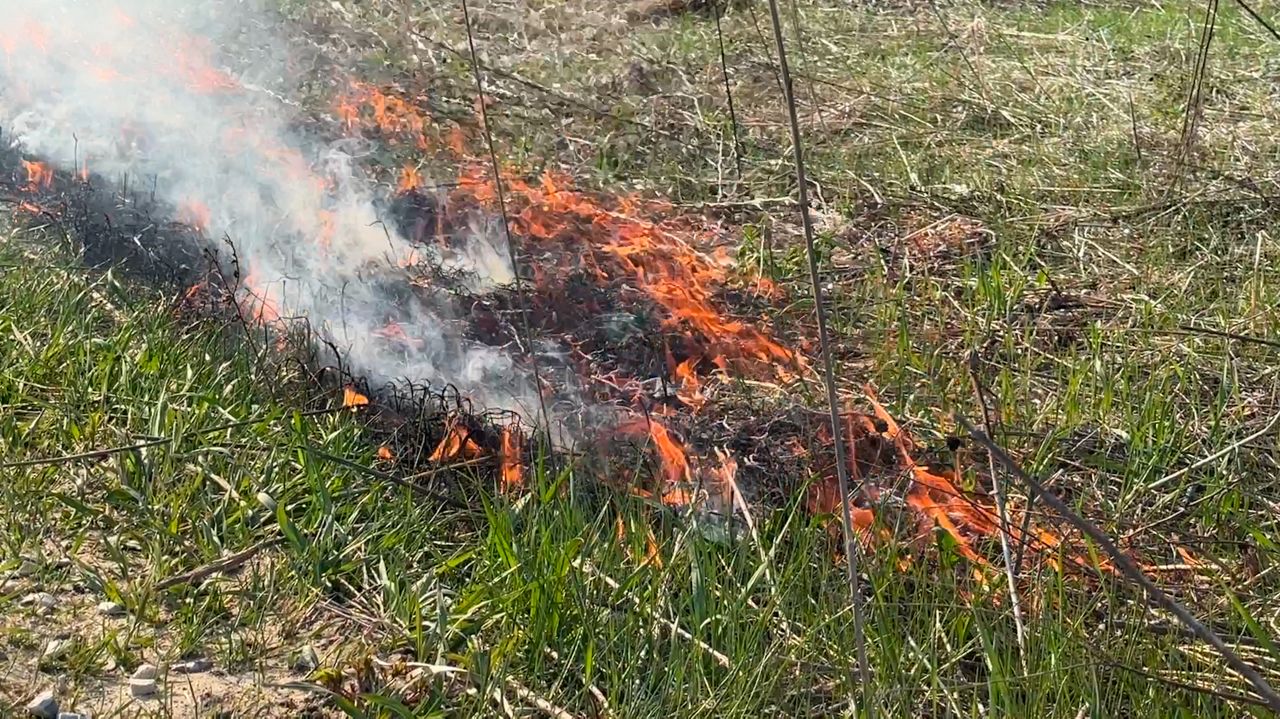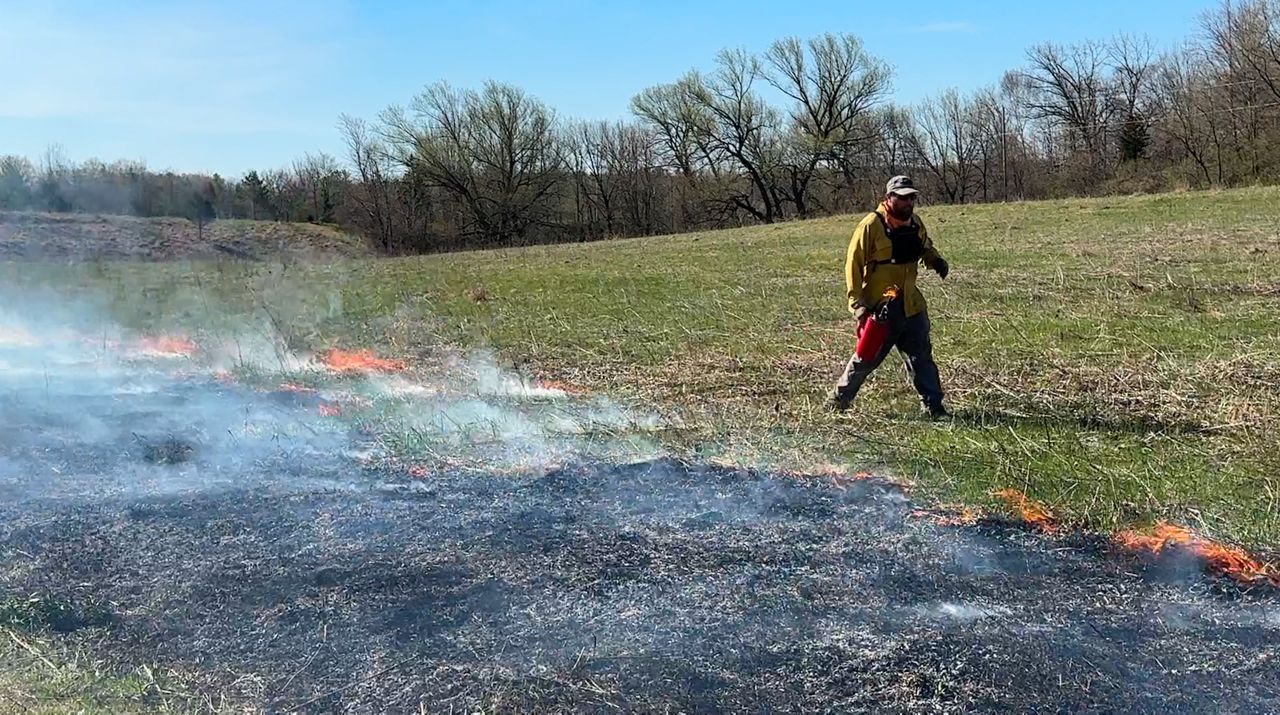WEST BEND, Wis. — Nature organizations across Wisconsin will be setting acres of land on fire during the spring and summer. This is called a prescribed burn.
In April, the Ozaukee Washington Land Trust set a prescribed burn at the Kratzsch Conservancy, hoping to rejuvenate the land.
Before setting a few acres on fire, Ryan Wallin monitored the weather and other conditions.
Wallin is the stewardship director for the Ozaukee Washington Land Trust.
“Relative humidity is right in the window that we want to see it in,” said Wallin. “Dry enough that we are going to see good fuel consumption, but not too dry to where it’s going to become out of control.”
Wallin said one of their goals with the prescribed burn is to prevent invasive species from moving in.
“It really helps just recycle those nutrients, provide new opportunities for different players in the species list to come out and show themselves and move things around a little bit and change the dynamics in the grassland system,” said Wallin.

Christine Bohn sprayed water to protect signage and keep the fire at bay. Bohn is one of the members of the Ozaukee Washington Land Trust Stew Crew.
“In this part of the state without prescribed fire, all of our natural systems want to turn into woods cause this area was all historically woodland, a big expansive woodland,” said Bohn. “To manage prairies and grasslands, we do need to keep fire on the landscape which is important for the pollinators.”
Wallin said this is just one of several prescribed burns to their nature preserves this year.
“We are all very passionate about it and trying to do what we can to protect these local spaces, especially for me, close to where I grew up and provide opportunities for folks and living in areas that don’t have as much natural areas [to] at least drive within reason to a space like this and enjoy,” said Wallin.
CORRECTION: A previous version of this article misspelled Ryan Wallin and Christine Bohn's names. This has been corrected. (May 1, 2024)



